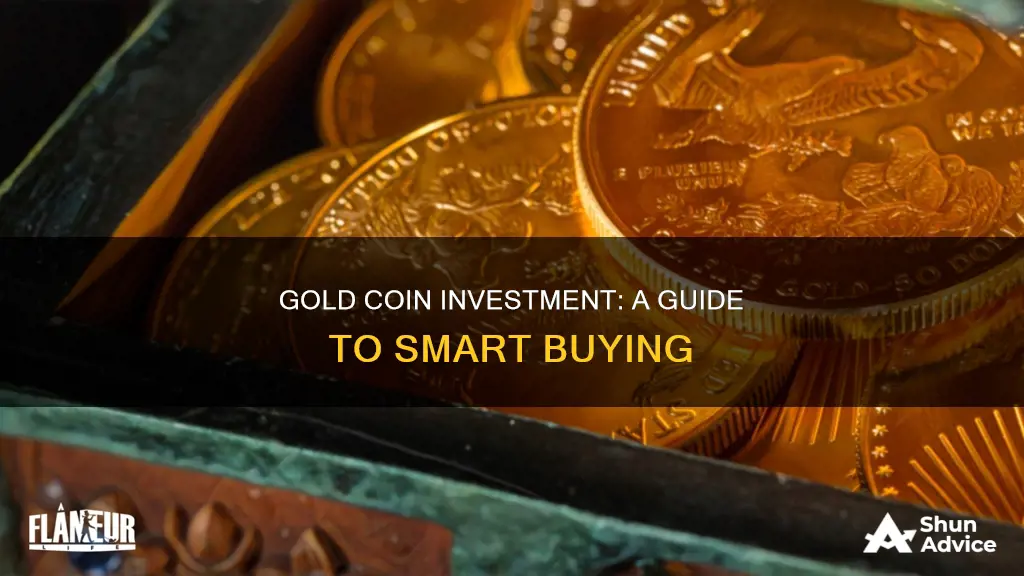
Gold has been a valuable commodity for centuries, and it remains a popular investment option today. Gold is often seen as a hedge against economic downturns, offering stability and a safe haven for investors. When considering how to invest in gold, there are several options available, each with its own advantages and drawbacks.
One traditional method is to invest in physical gold, such as bullion, bars, coins, or jewellery. However, this option comes with challenges like storage, insurance, and transaction fees. Buying stocks in gold mining companies is another way to gain exposure to the gold market, but it's important to remember that these stocks don't always move in tandem with gold prices.
For those seeking a more liquid and cost-effective approach, exchange-traded funds (ETFs) and mutual funds that track the price of gold or invest in gold mining companies offer a good alternative. These funds provide diversification and are easily traded on the stock market.
More sophisticated investors might consider gold futures or options, which are derivatives that allow investors to speculate on gold price movements without owning the physical asset. However, these investments come with higher risks and are not suitable for beginners.
Lastly, gold bonds and digital gold are modern alternatives that have gained popularity, especially in India, where gold is not just an investment but also holds cultural significance.
Each investment option has its pros and cons, and it's essential to carefully consider your resources, investment goals, and risk tolerance before deciding which method is the best fit for you.
| Characteristics | Values |
|---|---|
| Accessibility | More accessible to the average investor than other commodities |
| Forms | Bars, coins, jewellery, mutual funds, exchange-traded funds (ETFs), stocks, futures, options |
| Advantages | Hedge against inflation, economic upheaval, currency fluctuations, war |
| Disadvantages | Illiquid, costly to buy and sell, storage costs, insurance costs, high markup |

Gold coins vs. bullion
When it comes to investing in gold, there are several options to consider, each with its own advantages and disadvantages. Gold coins and bullion are two popular choices, and here are some key points to consider when comparing them:
Gold Coins:
Gold coins are minted in specific weights, often one or two ounces, and include collectible coins such as the South African Krugerrand, Canadian Maple Leaf, and American Gold Eagle. These coins are easily recognisable and carry a premium due to their legal tender status, historical value, and collectability. The value of gold coins is influenced by both the live gold spot price and their rarity, making it more challenging to quantify their worth. Gold coins are ideal for investors who appreciate the historical and cultural significance of coinage and are willing to pay a higher premium.
Bullion:
Gold bullion refers to gold bars or ingots that are officially recognised as being at least 99.5% pure. Bullion is typically inscribed with its weight and purity, making it easier to determine its value based on the live gold spot price. Bullion is available in a wide range of sizes, from small bars to large bricks, providing flexibility for investors. It is a straightforward way to invest in the inherent value of gold without the additional premiums associated with coins. However, bullion may be less liquid than coins due to its larger sizes and can incur storage and insurance costs.
When deciding between gold coins and bullion, it's important to consider your investment goals and preferences. Gold coins offer historical value, premium status as legal tender, and the potential for increased value over time due to their collectability. On the other hand, bullion provides a more direct investment in gold's inherent value, with its price closely tied to the live gold spot price. Bullion is also available in various sizes, allowing for flexible investment options. Ultimately, both gold coins and bullion are recognised forms of gold investment, and the choice depends on your specific needs and interests.
Gold Coin Commemoratives: Worthy Investment or Worthless?
You may want to see also

Gold ETFs
There are a few things to consider when choosing a gold ETF:
- Five-year returns: As most gold ETFs are pegged to the spot gold price, returns should align with gold price moves.
- Expense ratio: This is the annual fee paid out of your investment in the fund, so look for a low expense ratio.
- Leveraged gold ETFs: These use financial derivatives and borrowed money to bet on future price movements. They are generally more suitable for professional investors.
- Gold exchange-traded notes (ETNs): ETNs are secured debt obligations that don't own the underlying gold and have a greater risk of credit default.
- SPDR Gold MiniShares Trust
- IShares Gold Trust Micro
- Franklin Responsibly Sourced Gold ETF
- Goldman Sachs Physical Gold ETF
- SPDR Gold Trust
- IShares Gold Micro ETF
- Invesco DB Precious Metals Fund
Bitcoin Investment: Impact on Housing Assistance
You may want to see also

Gold mining stocks
Some of the top gold mining stocks include:
- Barrick Gold Corporation (NYSE:GOLD)
- Franco-Nevada Corporation (NYSE:FNV)
- VanEck Gold Miners ETF (NYSEMKT:GDX)
- Wheaton Precious Metals (TSX.V WRLG, NYSE:WPM)
- Newmont Corporation (TSX:NEM)
- Agnico Eagle Mines (TSX:AEM, NYSE:AEM)
- Royal Gold (NASDAQ:RGLD)
- AngloGold Ashanti (NYSE:AU)
- Eldorado Gold Corporation (NYSE:EGO)
- Sandstorm Gold Royalties (TSX:SSL)
- B2Gold (NYSEAMEX:BTG)
- Gold Fields Limited (GFI)
- Harmony Gold Mining Limited (HMY)
- Dundee Precious Metals Inc. (TSX:DPM, DPM.TO)
- DRDGold Limited (DRD)
Bitcoin Miner Investment: Best Options for Your Money
You may want to see also

Gold futures
When you buy a gold futures contract, you are agreeing to buy or sell a predetermined amount of gold (e.g. 100 troy ounces) at a specific price on a specific date. The advantage of gold futures is that they allow you to directly track the price of gold and they are highly liquid, making them a cheap way to invest large sums. However, they can be complex, and you may need to take physical delivery of the gold, although most traders choose to settle in cash or roll over the contract.
Before investing in gold futures, it's important to understand the risks involved. Gold futures can be volatile and are not suitable for beginners. There is a possibility of losing more money than you initially invested if the market moves against your position. Additionally, gold futures may require a significant amount of capital due to the large quantities of gold that the contracts represent.
If you're considering investing in gold futures, make sure to do your research, understand the contract specifications, and be aware of the potential risks and complexities involved.
Bitcoin Investment: Keep or Quit?
You may want to see also

Gold funds
Gold Exchange-Traded Funds (ETFs)
Gold ETFs are a type of security that tracks the price of gold or invests in gold mining companies. They can be bought and sold on a stock exchange, just like stocks, and each share of a gold ETF represents a fixed amount of gold. For example, the SPDR Gold Shares ETF (GLD) holds physical gold and deposit receipts, and its price tracks the price of physical bullion. This means that investors can get direct exposure to the metal's price moves.
Gold Mutual Funds
Gold mutual funds, like Franklin Templeton's Gold and Precious Metals Fund, are actively managed by professional investors. These funds aim to beat the returns of passively managed index funds and generally have higher expense ratios. Gold mutual funds provide diversification among different companies and are easy to own in a brokerage account or an IRA.
Things to Consider
It is important to remember that gold funds are not a direct investment in physical gold, and their value may not entirely match the market price of gold. Additionally, gold funds may have higher management fees than other types of investments.
A Beginner's Guide: Investing in Bitcoin Cash in the UK
You may want to see also
Frequently asked questions
There are several ways to invest in gold coins, including buying them from online dealers, local dealers, collectors, pawn shops, or even a bank or brokerage. You can also invest in gold exchange-traded funds (ETFs) or gold mining stocks.
One of the advantages of investing in physical gold coins is that you have the satisfaction of looking at and touching them. However, there are also several drawbacks, including the need to safeguard and insure the gold, as well as the potential difficulty of selling the coins for their full market value.
Gold coins are typically the choice for new investors as they are more liquid and commonly available in smaller sizes than bars.
It is important to buy gold coins from a reputable dealer and to be aware of any additional fees or premiums that may be charged above the gold's spot price. Additionally, consider the storage and insurance costs associated with owning physical gold.







